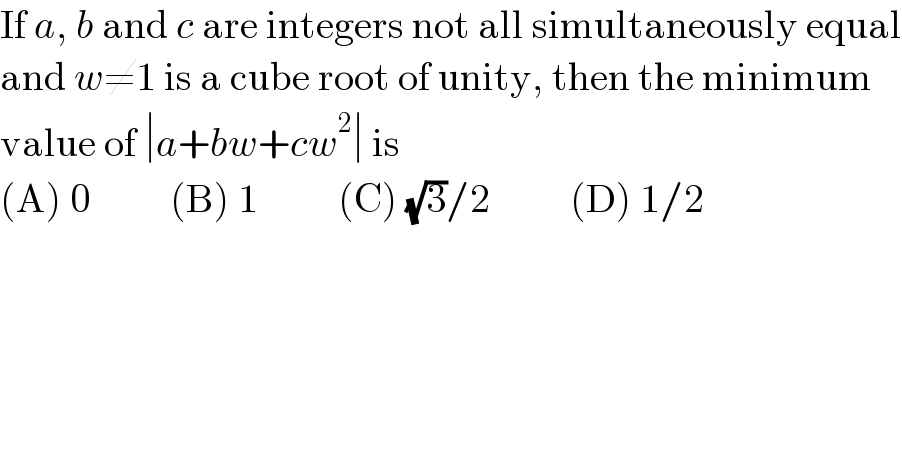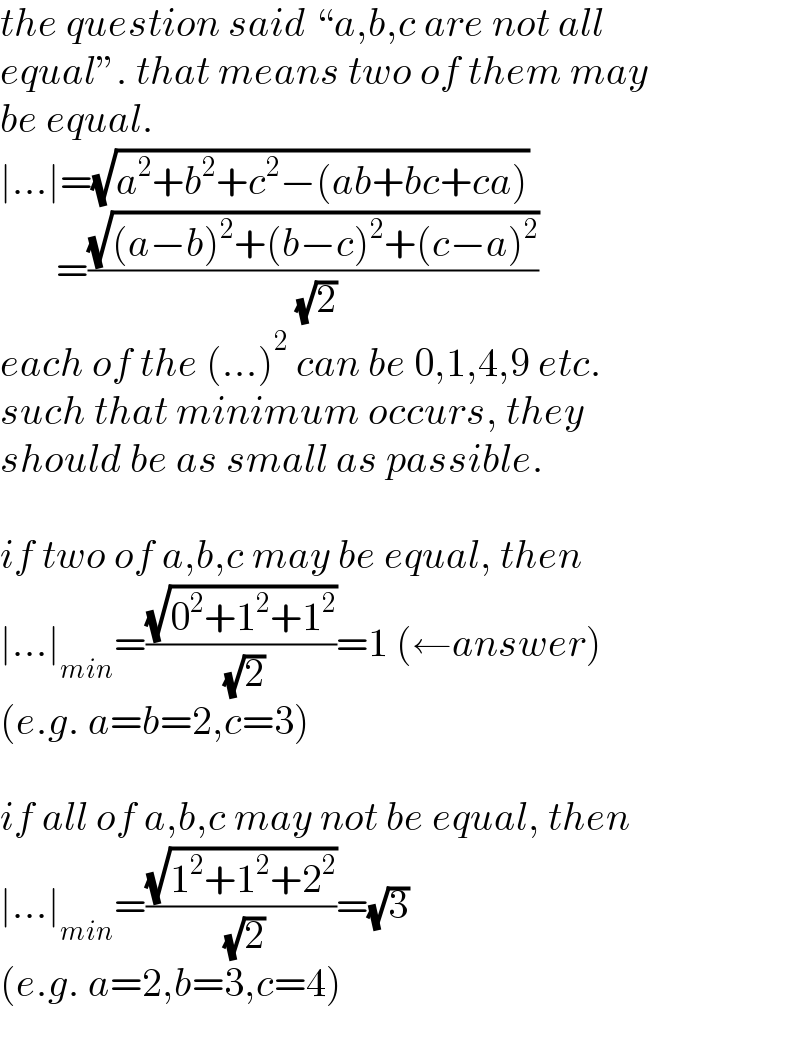Question Number 139590 by EnterUsername last updated on 29/Apr/21

Answered by MJS_new last updated on 29/Apr/21
![∣a+bw+cw^2 ∣= [w=−(1/2)±((√3)/2)i] =(√(a^2 +b^2 +c^2 −(ab+ac+bc)))=A (a, b, c) (d/dc)[A (a, b, c)]=0 ⇒ c=((a+b)/2) A (a, b, ((a+b)/2)) =((√3)/2)∣a−b∣ since b=a ⇒ c=a is not allowed and a,b ∈Z the minimum is at ∣a−b∣=1 ⇒ answer is ((√3)/2)](https://www.tinkutara.com/question/Q139591.png)
Commented by EnterUsername last updated on 29/Apr/21

Commented by EnterUsername last updated on 29/Apr/21

Commented by MJS_new last updated on 29/Apr/21

Commented by EnterUsername last updated on 29/Apr/21


Commented by mr W last updated on 29/Apr/21

Commented by EnterUsername last updated on 29/Apr/21

